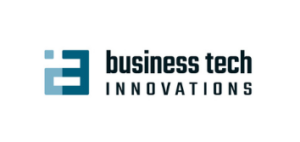
In the dynamic realm of Human Resources (HR), the infusion of Artificial Intelligence (AI) is sparking a transformational shift. HR practitioners are harnessing the power of AI-driven tools to revolutionize processes, amplify decision-making capabilities, and redefine the realm of talent management. This article unravels the dynamic interplay of AI in revolutionizing recruitment and talent management, ushering in operational efficiency, data-driven insights, and elevated candidate experiences.
The Power of AI in Recruitment
In the realm of recruitment, AI stands as an unparalleled catalyst for change, rendering processes more expedient, equitable, and perceptive. Machine learning algorithms meticulously dissect an array of data points encompassing resumes, job requisites, and candidate profiles to pinpoint the most suitable candidates. This not only liberates HR professionals from arduous tasks but also heightens the precision of candidate curation.

Furthermore, AI-infused chatbots and virtual assistants redefine the candidate journey. Through real-time interactions, they field inquiries, schedule interviews, and provide updates, ensuring a seamless experience that simultaneously empowers HR teams.
Talent Management and Predictive Insights
AI’s influence extends beyond recruitment, propelling talent management into the realm of predictive prowess. By scrutinizing employee data, machine learning algorithms unearth patterns and trends tied to performance, engagement, and attrition. This facilitates proactive interventions, enabling HR teams to preemptively address concerns and implement strategies to retain invaluable talent.
Moreover, AI empowers performance evaluations through analytical acumen. Delving into performance metrics and feedback data, AI delivers actionable insights that amplify managerial decision-making and individualized guidance.
Reducing Bias and Enhancing Diversity
A core facet of AI’s impact lies in its capacity to curtail unconscious biases permeating recruitment and talent management. Human evaluations can inadvertently harbor biases linked to gender, ethnicity, and other variables. AI-powered tools, conversely, make assessments grounded in objective criteria, nurturing a more equitable and diverse hiring landscape.
Additionally, AI spotlights diversity gaps within organizations, permitting HR professionals to engineer targeted initiatives that champion inclusivity and representation.
Data-Driven Decision-Making
AI’s quintessential potency resides in its ability to scrutinize and decipher colossal data volumes. In the HR sphere, this translates to data-propelled decision-making. By parsing employee feedback, performance metrics, and engagement surveys, AI bequeaths actionable insights. This equips HR professionals with an informed framework for choices encompassing training, promotions, and strategic workforce planning.
Challenges and Ethical Considerations
While AI bestows manifold advantages upon HR, it also beckons forth ethical reflections. Pertinent concerns revolve around data privacy, algorithmic bias, and the specter of job displacement. HR stakeholders must navigate these considerations conscientiously, ensuring the ethical and transparent deployment of AI tools to safeguard employee trust and regulatory adherence.
Innovation Beyond Boundaries: Forging the Future of HR
As AI ushers in a new epoch of HR innovation, the transformative implications are profound. From fortifying recruitment mechanics to furnishing predictive foresight for talent stewardship, AI is an irrefutable enabler of efficiency, bias mitigation, and data-powered judgment. HR practitioners stand poised to harness AI’s promise, steering its potential in a principled and accountable manner that augments organizational dynamism and nurtures a workforce poised for the future.




